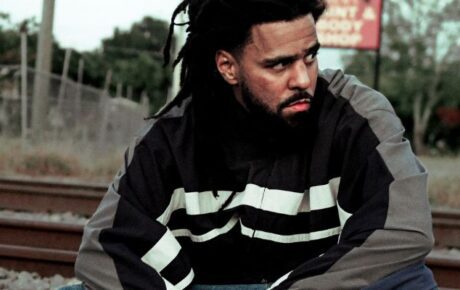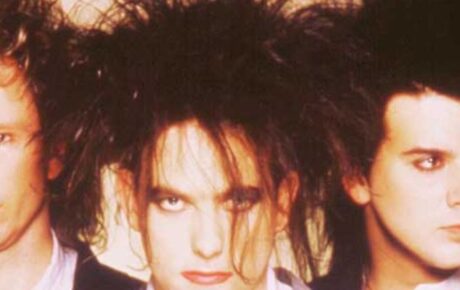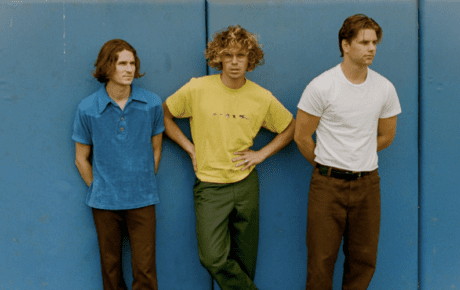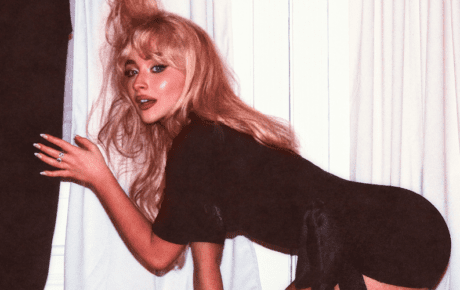*Warning – slight spoilers ahead*
It was the evening of November 9, and across the world, Marvel fans and cinephiles flocked to the cinema to catch the first release of the long-awaited Black Panther: Wakanda Forever.
A continuation from the original, it provides enough of a time jump for characters to have come into their own since the last film. Shuri, T’Challa’s sister, an influential technological innovator and scientist, played a minor yet critical role in the 2018 film, but she shone as the main spotlight in this second journey.
Viewers will catch many recognizable faces, including Queen Romanda and T’Chaka, among others, but also gives exciting new individuals who bring their spark to the narrative in spades, as well as an entire underwater nation, referred to as the Talokachians. Letitia Wright, who plays Shuri, recently described the film as a ‘love letter’ to the late Chadwick Boseman. It is heartbreakingly clear to viewers how true this is upon the film’s consumption. With references to T’Challa throughout creating a significant part of the narrative, the dedication to his memory in the film is in everything from the plot twists to the ever-familiar gestures, and it’s obvious the movie’s script, soundtrack and everything in between kept him in mind during the production process. I, for one, would call it a fitting tribute, and many cast members have echoed this sentiment in interviews.
But onto the soundtrack! The undisputed most anticipated highlight proved to be the return of the legend we all know as Rihanna, presenting listeners with her first musical foray in years with the upbeat track, ‘Lift Me Up’, which makes its appearance during the closing credits. After so long without Rihanna tunes, fans have been starved for even a sliver of content, and the piece is a triumphant return that echoes Wakanda Forever‘s themes of victory, togetherness, and identity.
The film grapples with both struggle and celebration, and Rihanna reflects this in dulcet tones during the chorus with the line ‘lift me up / hold me down.‘ The tune itself is slow and feels like a lullaby in the form of a lightweight, calming ballad. The airy arrangement and pace were very differently from the original Black Panther soundtrack, which presented more music in the form of hip-hop jams, comparatively. Overall, it’s a careful balancing act that flawlessly, yet mindlessly unfurls.
Another highlight is Tems’ piece, ‘No Woman No Cry.’ A collaboration that sees the assistance of Rihanna, audiences hear ‘No Woman No Cry’ during a tragic scene at the film’s beginning. Again, we’re not here for spoilers, but you will shed tears during this sequence – if you know, you know. Tems brings her emotional magic – and the original Bob Marley 1974 version of this song was devastating enough to begin with. Stock up on the tissues, team.
Burna Boy also features with the despairing single ‘Alone’ that appears near the commencement of the movie. It’s a moody song, a reflection on one man’s journey through
emotion and navigating the world. It is moving and starkly relevant, particularly when considering much of Wakanda Forever focuses on the impact of grief and loss.
It’s worth mentioning Snow Tha Product ft. E-40’s ‘La Vida’ as well. It’s a turn away from the melancholy melodies that echo throughout much of Wakanda Forever, coming across a fresh, cheerful track that brings a sprinkle of fun. Snow Tha Product is a relative musical newcomer who transitions between English and Spanish in this cross-cultural celebratory ode to Black and Brown excellence. Snow cycles through naming different nationalities, including but not limited to Asians, Blacks and Latinos. Following up with the lyrics ‘gotta have tough skin / have hella heart‘ and ‘I’m indigenous / you not about to play me out baby, I’m built for this.‘ It’s a powerful, striking song, made even stronger by E-40’s old-school, West Coast-style verses that are peppered throughout the delivery.
The soundtrack also presents a multicultural nod in many of the pieces, with director Ryan Coogler and composer Ludwig Göransson aiming to create an “immersive journey of both sound and voice.” Their inspirations included both Nigerian and Mesoamerican influences, which results in a creation that gives a compelling platform to some lesser-known artists such as Pat Boy, whose track ‘Laayli’ kuxa’ano’one’ is entirely in Mayan – a language that many audiences likely wouldn’t have been regularly exposed to before Wakanda Forever. The film’s exposure is both gratifying and educating, and with Marvel’s reach, this type of piece can quickly assist in catapulting artists to superstardom.
Stormzy also shines in ‘Interlude,’ bringing his signature grime style to the centralized juncture. Ahead of his recently announced album This Is What I Mean arriving on streaming platforms worldwide on November 25, Stormzy has clearly been busy. With a similar message to the aforementioned ‘Alone,’ it’s another detailed example of how Wakanda Forever addresses loss in not only its dialogue but other commentative aspects as well.
It also wouldn’t be Marvel without at least a few high-intensity action sequences, and while we’re not about to provide spoilers for the dedicated fans who have not had time to hustle to the cinema yet, we can safely say that if this is what has you invested in superhero films – you won’t be disappointed upon watching.
Typically, the musical choices reflect this and Wakanda Forever‘s general narrative progression. With Coogler and Göransson wanting the score to reflect the change from grief to tribulation, there are many middle moments, including Tobe Nwigwe and Fat Nwigwe’s ‘They Want It, But No.’ Introduced during one such heart-pumping sequence, the pace and lyrics craft the mood while also dramatically increasing the tension.
The latter half of the soundtrack primarily consists of more global influences. From the Alemán ft Rema song ‘Pantera’, which makes frequent cuts between Pidgin English, Spanish and elite versing, to the sonically enriching, high-energy tune ‘Jele’, Wakanda Forever is undoubtedly a musical masterpiece. Blue Rojo’s ‘Inframundo’ perfectly encapsulates the beauty of both Wakanda and the anti-hero underwater Talokan in his sweeping song which explodes with passion and heart.
A final critical tune to address in relation to this startling, moving achievement of a film would have to be the closing track, ‘Mi Pueblo.’ Performed by Guadalupe de Jesús Chan Poot, it’s a song that doesn’t require singing to come across as emotionally striking. Set against a natural background, echoing the movements of the birds and the waves, it plays during the film’s mid-credit sequence and, with the voiceover on top, is poignant and heart-rending. You’ll know why when you get there.
Between the soundtrack, the carefully crafted dedications to Chadwick Boseman, and the stunningly innovative cinematography, it’s sure that fans will treasure this second instalment of the Black Panther franchise and that it will undoubtedly be remembered as one of the best films of the year.












